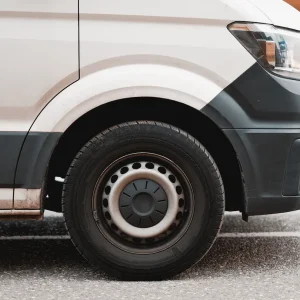The collaboration between Revolve Technologies and Intelligent Energy (IE), which has established a subsidiary company, Emerald Automotive, to take the project to market by 2014, used a Ford Transit as the basic component donor vehicle and a 1.4-litre Ford Fiesta engine as the range-extender to complement the high-voltage lithium-ion battery supplied by Axeon.
The TSB – a non-departmental public body sponsored by the Department for Business, Innovation and Skills – invested £3.0m in the project with IE and Revolve bringing the total up to £6.4m.
The vehicle is targeted at meeting the requirements of large fleets using 3.5-tonne vans, and during development the partnership consulted with blue-chip companies such as Royal Mail and DHL.
In order not to eat into the 1400kg payload with the introduction of electric components such as batteries, inverters and traction motors, the prototype was developed with a lightweight structure. The van features an aluminium chassis, space frame cab and lightweight composite body panels.
Emerald Automotive claimed the demonstrators achieved CO2 emissions of 31.5g/km, an 80% reduction compared with current best-in-class heavy vans, coupled with fuel consumption of 232mpg. In tests the demonstrators recorded a range of 59 miles in pure electric mode, which, Emerald admitted, left ground to be made up to hit the predicted 64.2 miles.
The production plan is for suppliers to deliver components to a manufacturing hub, which will then send CKD (complete knock-down) kits to satellite assembly plants.
Although the development process relied almost exclusively on UK suppliers, the initial manufacturing hub would be in St Louis, Missouri in the US.
Emerald Automotive boss Andy Tempest said the company needed to sell 4000 vans a year to break even. It has a base business plan of producing 10,000 vans a year scaling up to 100,000 units. The vans are expected to cost about £32,000 each.
Upon launch the company expects to have a clear run at the market. Finance chief Rian Urding claimed: “No OEMs have any plans to put a hybrid delivery van into production in the next four years.”






